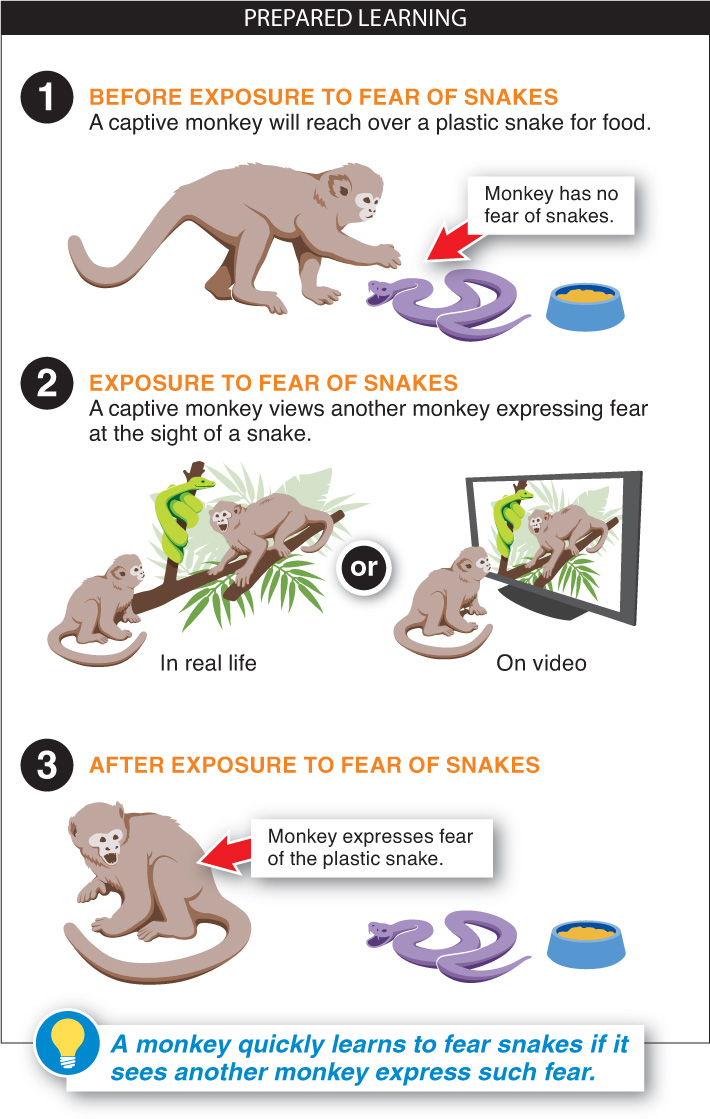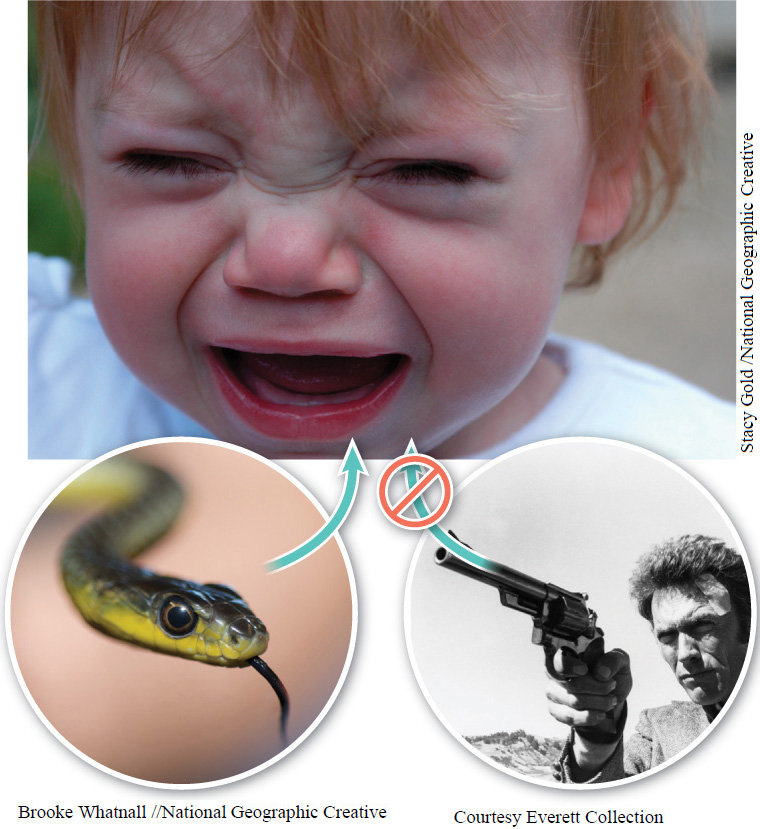In contrast to innate behaviors are those behaviors that are influenced to a much greater degree by the individual’s environment. These behaviors are acquired, altered, and modified over time in response to past experiences. That is, they require learning. There can be tremendous variation among behaviors that require learning: some come relatively easily and are learned by most individuals in a population, while other behaviors are less easily learned.
Consider a trait common to most primates, including humans: fear of snakes. In the wild, rhesus monkeys are afraid of snakes. The sight of a snake causes the monkeys to engage in fear-
Observations of monkeys in captivity, however, reveal that they aren’t born with a fear of snakes. Captive rhesus monkeys will reach over a plastic model of a snake to get a peanut. Experiments also show that monkeys learn to fear snakes if they see another monkey terrified at the sight of a snake, even if they only see the reaction on television (FIGURE 9-5). They will no longer reach over a snake model to get a peanut, even when they are very hungry. Instead, they scream and move as far away from the artificial snake as possible. Studies on humans show an equally easily learned fear of snakes. Rather than shrieking and cowering in the corner of a cage, however, we respond with sweaty palms and an increased heart rate.

370
Why is it so much easier for an infant to learn a complex language than for a college student to learn biology?
When behaviors are learned easily and by all (or nearly all) individuals, this is called prepared learning. In addition to the snake-
Examples of prepared learning also underscore the fact that organisms don’t learn everything with equal ease. For example, researchers demonstrated how easily monkeys learned to fear snakes, but in a related experiment, they found that the monkeys were not prepared to learn other behaviors as easily. The researchers altered the videotape that previously showed a monkey expressing fear on encountering a snake to show a monkey having the same fear reaction in response to a flower or a toy rabbit. The captive monkeys—
Human babies quickly and easily develop a fear of snakes. Yet they don’t easily develop a fear of guns. Why?
These observations point to an evolutionary basis for the acquisition of certain behaviors. It seems that organisms are well-

Like all genes, any genes involved in behaviors have been handed down to us from our ancestors. Snakes caused many human deaths over the course of our evolutionary history. In contrast, guns didn’t kill a single person until very recently on the evolutionary time scale. Accordingly, we still fear our ancient enemy, the snake, and have no instinctual response to novel threats, regardless of how deadly.
TAKE-HOME MESSAGE 9.3
In contrast to innate behaviors are those behaviors that are influenced more by the individual’s environment, requiring some learning, and are often modified over time in response to past experiences. Organisms are well-
Why are babies predisposed to fear snakes but not guns?
There is an evolutionary basis for this type of prepared learning. It appears that organisms are well prepared to learn behaviors that were important to their ancestors’ survival, such as fearing snakes. Babies are not predisposed, however, to fear guns; fear of guns is not part of their ancestors’ history and was irrelevant to their ancestors’ survival and reproductive success.
371